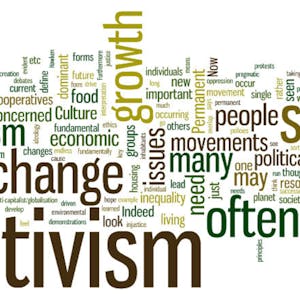How to Change the World is a compelling course that explores pressing global challenges and potential solutions, emphasizing the power of collective action and cooperation. Through thought-provoking discussions, it delves into poverty, climate change, health care, gender equality, and education, providing participants with a comprehensive understanding of these critical issues.
The course comprises six modules:
Participants will gain valuable insights and inspiration to initiate positive change in their communities and beyond.
Certificate Available ✔
Get Started / More Info
How to Change the World comprises six modules that delve into concepts of social goods, poverty, climate change, global health, women empowerment, and practical idealism, offering comprehensive insights into driving positive change.
Module 1: Explores the concept of social goods and the commons, shedding light on the importance of cooperation and trust in addressing societal challenges.
Module 2: Focuses on poverty and development, examining multi-pronged efforts to end poverty and promote inclusive economic growth.
Module 3: Delves into climate change and sustainability, highlighting the need for global and local responses to combat environmental challenges.
Module 4: Explores disease and global health care, emphasizing the importance of holistic responses and effective testing to address major health challenges.
Module 5: Examines the intersection of women, education, and social change, showcasing the transformative impact of education in empowering women and driving societal progress.
Module 6: Encourages reflection and practical idealism, giving participants the opportunity to share their thoughts and engage in peer review.
Introduction to Logic and Critical Thinking equips learners with the skills to identify, analyze, and construct compelling arguments, offering tools to enhance critical...
Should genetic information be public? Dive into ethical debates and explore art's role in shaping the discourse. Craft policy advice in this thought-provoking course....
Representaciones culturales de las sexualidades es un curso que explora las representaciones culturales de las sexualidades no normativas en la cultura contemporánea,...
Discover the profound insights of Max Weber's "The Protestant Ethic and the Spirit of Capitalism" in this course, exploring the historical and cultural...